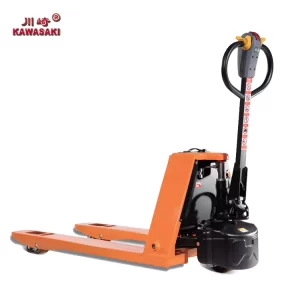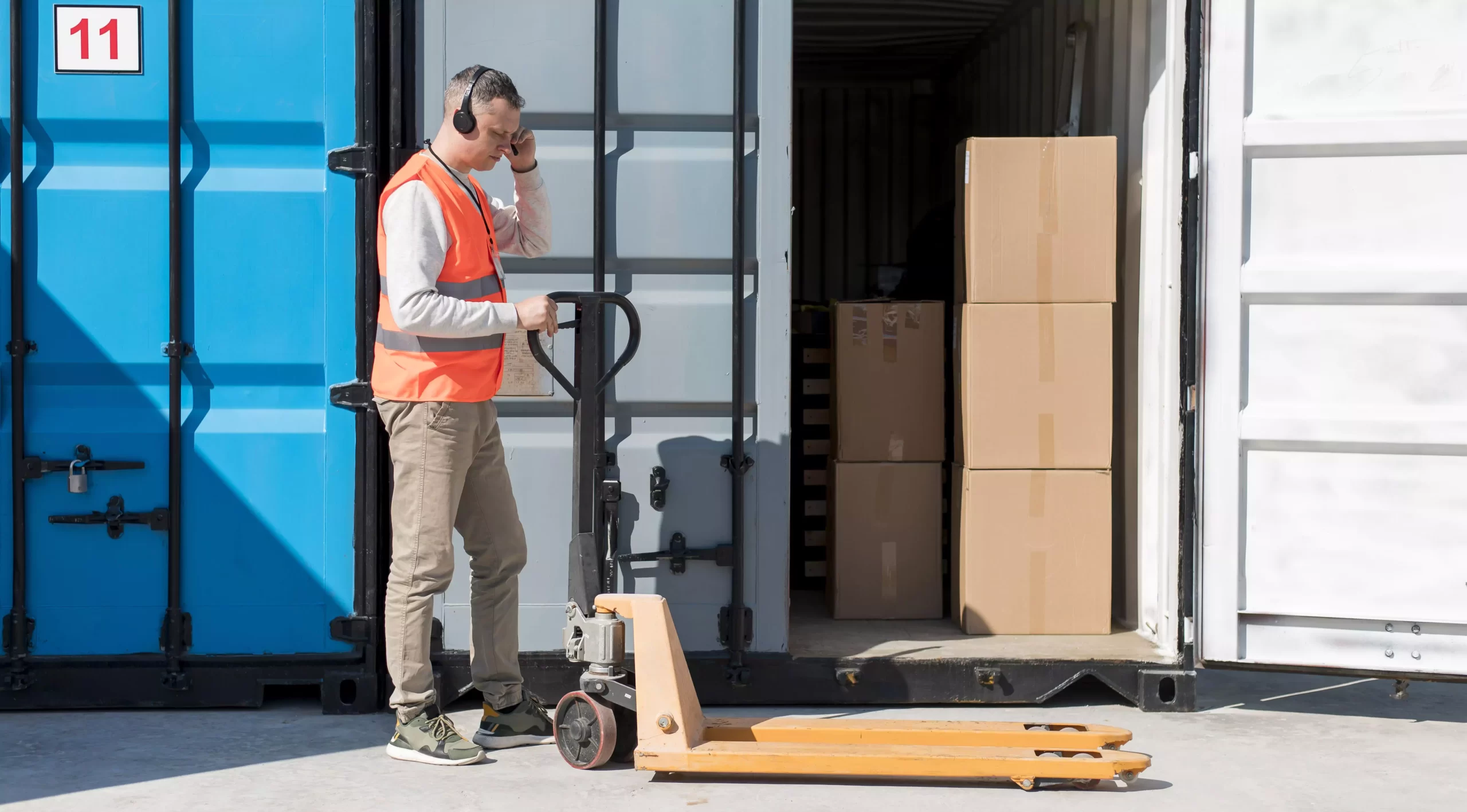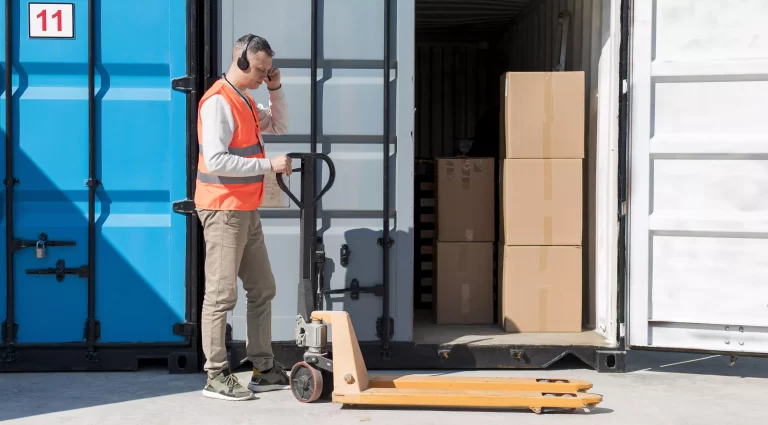To make a choice in warehouse operations between pallet trucks and forklifts, consider factors like load capacity, space limitations, and cost considerations.
The Basics of Material Handling Equipment
It is a given in warehouse operations that without any equipment, smooth movement is simply not possible. Pallet trucks and forklifts are two main pieces of equipment frequently measured against each other based on their unmatched ability to accomplish different jobs in warehouses. While there are many types of pallet handling equipment in the market, pallet trucks and forklifts are the two main ones and are most widely compared to the other due to their unique capabilities in warehouse operation tasks.
Differences Between Pallet Trucks and Forklifts
Pallet trucks are designed to move pallets around a warehouse area with greater efficiency compared to costlier and bulky forklifts. There are electric fulcrum trucks, and the electric form is best for managing key parts high voltage lighter after baling. In contrast, forklifts are larger machinery that can elevate heavy loads to considerable heights. There are many types such as either counterbalance or reach forks ideal for different uses in numerous warehouse tasks.
Common Uses in Warehousing Operations
Pallet trucks are useful for moving things over a distance across a smooth floor and are often used in warehouse settings. They are suited for places where you need to make frequent runs. On the other hand, forklifts are used to stack pallets at higher levels and also handle bigger goods that a pallet truck cannot handle.
Evaluating Warehouse Requirements
However, if you are in the market for a pallet truck or a forklift and you want to know which of the two is more suited to your warehouse needs, there are a few things to take into account to ensure the highest level of efficiency and cost savings. There are many considerations to keep in mind to ensure the most efficient and cost-effective solution when you need to decide whether to select a pallet truck or a forklift for your warehouse requirements.
Load Capacity and Handling Needs
Deciding the material handling equipment type as required in this capacity involves assessing the load capacity and handling needs. It is particularly true when it comes to choosing pallet trucks where you must know specifications such as load bearing and weight to choose the right one. These units usually boast a rated load capacity of 1,600 kg or 2,000 kg and have a strong frame and reinforced forks built for long-term durability. Forklifts usually have a load capacity comparison to pallet trucks. Choosing the type of equipment for material movement in a warehouse environment also includes the ability to lift and handle loads easily. If you are regularly dealing with objects that are larger than a person can carry alone, you should be looking into a forklift. However, if the bulk of your needs is simply to move loads relatively short distances, a pallet truck may be a good choice.
Space Constraints and Maneuverability
The amount of space you have available in your warehouse has a significant impact on your choice of equipment options between pallet trucks, ideal for moving in aisles and tight areas of your facility due to their small size, and forklifts, which, on the other hand, need more space to operate safely but are the ideal solution for getting to high shelves or transporting large loads simultaneously.
Cost Considerations for Equipment Investment
When considering purchasing material handling equipment, it’s important to assess the upfront expenses as well as the financial impact over time.
Initial Purchase Costs and Budgeting
The set prices on the pallet truck and the forklift vary rather significantly from each other. Pallet trucks tend to be more affordable and are a common option for businesses that may be on a budget or require multiple units over large facilities. However, forklifts are much more expensive to buy and can be used in almost any warehouse function.
Long-term Maintenance and Operational Costs
Also, keep in mind the long-term maintenance costs that will be associated with these choices as you decide between the two. The electric pallet truck has many parts which means a rise in maintenance costs compared to the manual ones, but the maintenance costs are still more affordable than those of a forklift. Forklifts are serviced for safety and effectiveness, and over time, those can add up.
A popular name that offers informative content around quality products only designed for efficiency and long-lasting lifespan is APOLLO. For companies seeking tailored material handling solutions that fit their specific needs and desires, they can also opt to look at options like APOLLO, which can provide insights into the best products made with efficiency and durability in mind for warehouses and facilities.

By keeping these points in mind to your unique operational needs and goals, you can ensure you make a wise decision that not only enhances efficiency but also helps your financial goals. When you keep these factors in mind, you will have an informed decision that will enhance your efficiency and help you meet your financial goals.
Safety and Training Implications
Operator Training Requirements
The performance of the pallet truck and the forklift will need training for their operators. Forklifts are not as simple as they seem, so they usually require long training sessions for many reasons, including the risk involved. For safety reasons and to prevent accidents, operators must be certified and trained on the specific forklift they will be operating, including knowledge of load capacities, maneuvering methods, and safety procedures.
Pallet trucks also require little training in comparison to a forklift, on the other hand. Most manual pallet trucks are easy to use, but if you choose an electric version, you may need to provide employees with a little instruction on how to use the controls or maintain the batteries. However, the training required for pallet trucks is generally less than that of a forklift. Still, the training required for pallet trucks is usually shorter than that involved in getting trained for a forklift.
Safety Features and Risk Management
Tipover is one of the main causes of accidents with forklifts that come with overhead guards that require routine maintenance and checks to be in good condition. A work environment while using material handling equipment is essential to be able to implement safety measures like these.
Pallet jacks are designed to reduce risk when compared to a forklift thanks to their slow speeds and since they are easy to maneuver, they come with safety features, including load braking systems in electric versions. Before you choose between these options, it is essential to assess the safety needs of your warehouse.
Recommendations Based on APOLLO’s Product Offerings
APOLLO Pallet Trucks: Features and Advantages
APOLLO has a range of products, designed and built with efficiency and longevity in mind if you want pallet truck options. The electric pallet trucks are for maneuvering, and all have built-in ergonomics, so operators do not get fatigued. These models are tough and designed to take heavy use.
Of course, this is convenient for businesses that range their budget but still keep the standard performance high, because APOLLO pallet trucks are low maintenance and cost-effective, perfect for this kind of company to make warehouse operations simpler. If a business is managing its budget and still wants to streamline its warehouse operations to the highest quality possible, a great way to do so is through APOLLO’s pallet trucks as they require little to no maintenance and are budget-friendly.
APOLLO Other Products: Features and Advantages
Apollo’s products are available in configurations to meet diverse operational needs with capabilities, including high-capacity lifting and precise control systems to maximize efficiency. You can get setups to fulfill multiple functional needs with specs similar to a heavy lift capacity and controlled systems working accurately and efficiently.
APOLLO implements trucks that exceed the industry standard whilst focusing on quality and performance with world-class reliability. Long-term value — less downtime and additional features. Increased uptime and improved capabilities provide long-term value.
APOLLO specializes in tailored solutions for your warehouse needs, ensuring compliance with safety and performance regulations to the greatest extent possible when you check their offering. Once you discover APOLLO, you may uncover tailored solutions that suit your warehousing needs, while ensuring that operations across the board are maximally compliant with safety and performance standards.
With these factors in mind, you will be able to decide the right equipment — pallet truck or forklift — to take your housekeeping in the warehouse to the next level while still adhering to stringent safety regulations. All of these are significant considerations that, alongside your unique requirements, will lead to you making the right decision on the right piece of equipment, either pallet truck or forklift, to enhance the productivity of your warehouse processes without compromising the safety of your team.


